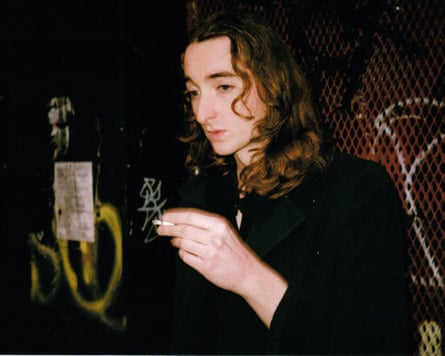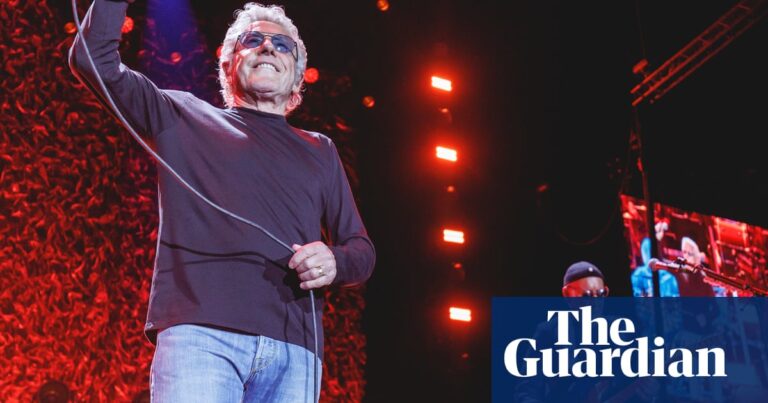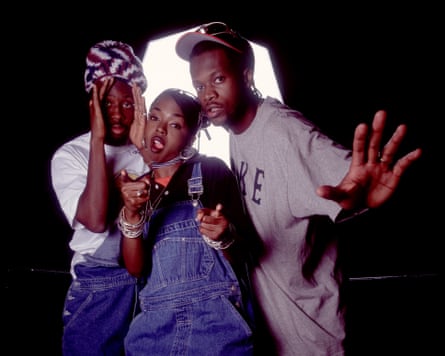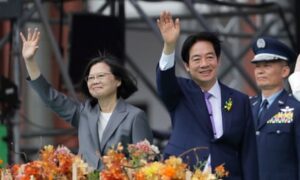They were the overnight sensation 30 years in the making. In 2017, a review appeared in the New York Times: “My obsession with the Necks, the greatest trio on Earth”. It followed the LA Times, which called them “among the world’s greatest forces in music”. The Washington Post, in 2020, was slower to catch on, describing one of their songs as “umpteen metric tons of bouncing-clinking stuff being discarded into an abyss of stairs” (complimentary, of course).
It’s a good thing they’re smart enough not to pay attention to any of it. The Necks’ music is so ephemeral that no one can be expected to respond the same way. There are no set lists. No expectations. And definitely no requests. There is only trust: that the three of them will quite literally make it up as they go along.
It was in 1986 that bassist Lloyd Swanton, percussionist Tony Buck and pianist Chris Abrahams, all seasoned players, coalesced around Abrahams’ description of their basic principle: “What if we just, you know, played music?” On Friday, they released Bleed, their 29th album (including live recordings, which – being improvised – are as unique as the rest).
Originally, the Necks were an entirely private project. There were around eight months of “rehearsals” at the University of Sydney’s music department with no thought of playing live, until the person who allowed them access to the room invited them to perform at an afternoon concert series.
-
Sign up for the fun stuff with our rundown of must-reads, pop culture and tips for the weekend, every Saturday morning
Their early shows weren’t exactly ecstatically received. “People falling asleep wasn’t that unusual,” Abrahams says. “I remember … we’d finish a set and several people were actually lying on their backs.”

Really, the Necks were just inviting the audience to enter the same zone they were aiming for: a trance, where the instruments appeared to play them, instead of the other way around. They soon hit upon the closest they’d ever get to a formula – one of them would start (though no one knew who), then the others would enter. By degrees, a piece would take shape.
Now, Swanton says, “we can do it in our sleep, though I hope it doesn’t sound like that”. The challenge, early on, was to get themselves into the necessary mental state to fall back on that original principle: to just play. “We wanted to pursue the idea of being entirely in the moment.”
All are virtuosos. Jim Moginie, who has played with Abrahams both solo and with Midnight Oil (for whom Abrahams was briefly a touring member), calls him as “probably the premier piano player in this country. We were using about one per cent of his brain with what we were doing.”
There’s an alchemy that happens live, Moginie says: “It’s not jazz, it’s something else. It’s improvised music, and the fact that they make it up every night – that’s part of the brinkmanship of it, isn’t it? They’re straddling the tightrope, the spotlight’s on them and you don’t know what’s going to happen.”
“Something else” might be the only way to label the Necks. Their own Bandcamp describes them as “not entirely avant-garde, nor minimalist, nor ambient, nor jazz”. Swanton smiles: “It’s not that unusual to have trouble describing music in words; that’s kind of inherent in the act of making music and sharing it.”

Abrahams, for his part, is unfussed. “I have no problem with people categorising us however they see fit. Every listener has the right to interpret what we do however they feel, and it’s a human need to categorise and to put a name to things. I don’t mind being thought of as all of the above, or none of the above.”
after newsletter promotion
That doesn’t mean there aren’t plenty of musical reference points for what the Necks do. The atmospheric stillness and slow build of Miles Davis’s fusion breakthrough In a Silent Way comes to mind. So too the ambient works of Brian Eno, who invited the Necks to perform as part of a supergroup including himself and Underworld’s Karl Hyde in 2009.
But no group of musicians has created an entire career out of thin air in quite the same way. The Necks don’t rehearse: “Even before we were performing live, I wouldn’t call it rehearsing, because we had nothing to rehearse towards,” Swanton says. Recordings are a little fussier, technically speaking, but still, nothing is preconceived.
There was just one occasion in their career, Swanton says, when he experienced stage fright. Percussionist Tony Buck had relocated to Berlin, and the group hadn’t played for a year. “We’d started to get a bit of a reputation, and we were about to go on stage in front of a room full of hundreds of people. I was just quietly questioning myself, can we actually do this?”

They could. And they continue to do so, to the point where the group is more in demand than ever, especially in Europe and America. Like their music, their career has built by increments. “The question now is, can we play this much and not get jaded and disillusioned? And yet, every time I play with the band, I can’t believe how we just get up there, and out it comes,” Swanton says.
Occasionally, he confesses, he pines for the early days, when it was just the three of them. “I still sometimes feel it’s kind of a shame that we went public, so to speak, and I wonder whether we ought to form another private band, because there’s something very special about that.”
Perhaps. But if the Necks had remained behind closed doors, they would have denied the rest of us something very special too. For now, they’re just making it up as they go.
-
The Necks’ new album, Bleed, is out now via Northern Spy. They tour across Europe in November and Australia in January and February 2025
Source: theguardian.com





















